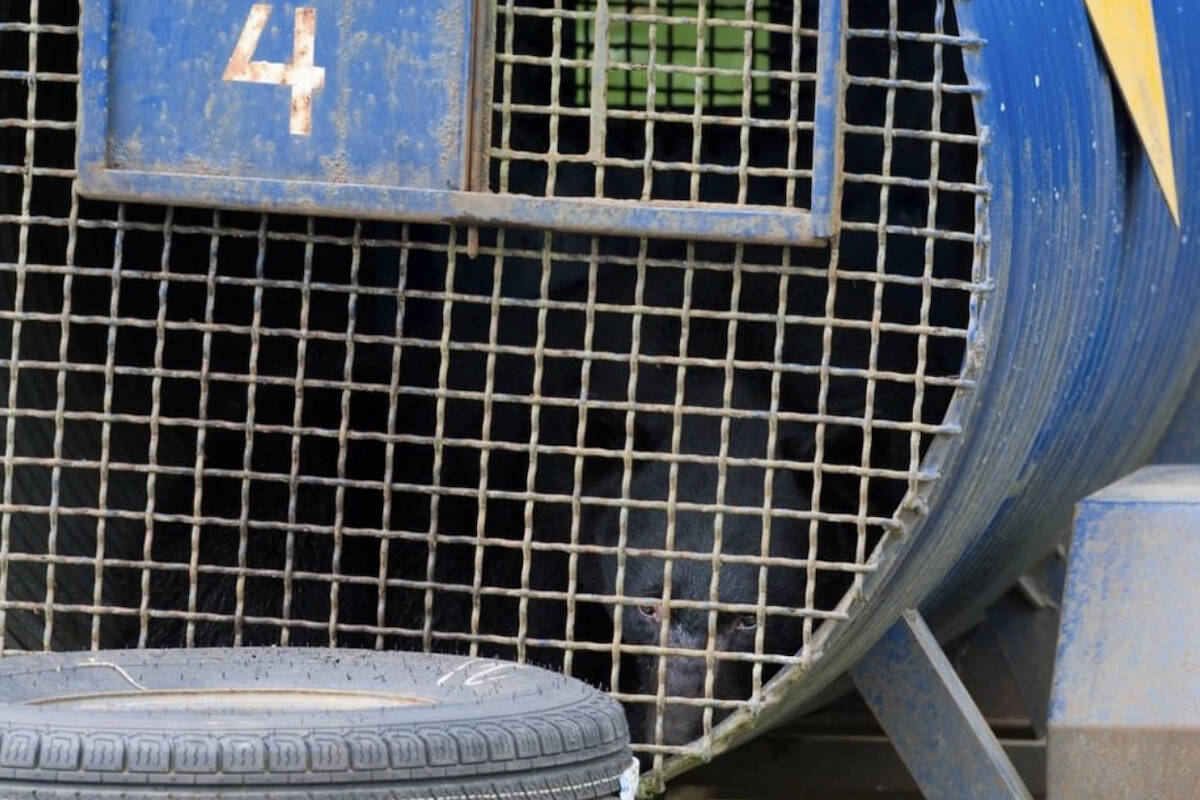Port Alice is proud to be known for its rugged, outdoor beauty, its quiet, anti-city lifestyle, and its plentiful wildlife.
It does not want a reputation for being the place where they kill bears.
August is not yet four weeks old and four black bears have been euthanized this month due to what the Village of Port Alice is calling the laziness of its residents.
The village recently posted on its social media account that the reason “lies 100 per cent with our own community.”
The post added while there is lots of talk about becoming a bear smart community, “that will only be successful if we, as a community, take responsibility for our own actions, and take some extra time to educate ourselves, neighbours, and visitors to the area. Laziness is the leading cause of death for these bears and regardless of what tools we use to collect the attractants, bears will continue to die if humans do not take responsibility for their actions.”
Port Alice has a population of a little over 700 people and is located in Quatsino First Nation traditional territory on the northern tip of Vancouver Island. Seeing bears around the village is a natural occurrence that’s largely unavoidable.
What isn’t unavoidable, however, is making sure you’re not leaving out food attractants that will cause bear conflicts.
Steve Petrovic, a conservation officer for the North Island Zone (which covers a vast area from the Comox Valley all the way to Bella Bella), says attractants are what ultimately caused the recent euthanizations.
“People are not securing their garbage in a proper manner,” he confirmed, “and there are other attractants in the community, such as some people still having bird feeders out and other folks putting things in their compost that can be an attractant, but I would say the number one violation is how garbage is being managed.”
Petrovic said the village’s garbage contractor had a mechanical equipment failure that “ultimately influenced the frequency of which those commercial bins would be picked up and emptied.”
He found all the bins he inspected to be functioning properly, but several were overflowing and people were placing garbage over top of them and beside them.
“Even when they were empty, we still had people who were too lazy to ensure that the locking mechanism was engaged so that the top of the bin can’t just be pushed up and accessed by a bear. The bears became accustomed to essentially walking through the middle of town and finding garbage to rip open and feed on.”
This led to the bears walking onto people’s decks, pushing on doors, and then going into carports and accessing deep freezers to get at the frozen meat inside.
“When a bear has progressed to the point where it’s desensitized and has habitual behaviour, unfortunately the CO service has to make the decision that it’s not a relocation candidate,” he added.
This is when the animals have to be destroyed.
Petrovic said officers will be giving out warning letters, violation tickets, and formal orders for residents to remove attractants. If they still don’t see compliance, action can be escalated even further.
“We certainly have the option of pushing the matter into provincial court so the person or party can stand up before a judge and explain why they made the choices they made that put both people and bears at risk.”
However, it’s not all bad news. There are some people in the community of Port Alice who are very passionate about wanting to keep bears safe. Petrovic said he was “very impressed by the actions of [those] individuals.”
Finally, he wanted to make it clear that conservation officers do not enjoy having to euthanize animals.
“It’s extremely frustrating to have to destroy an otherwise healthy animal that has been influenced by bad human behaviour… it’s the least favourite part of any CO’s job.”
Port Alice mayor Kevin Cameron wasn’t immediately available for comment.
RELATED: Bear cubs rescued from Port Alice tree, sent to wildlife rehabilitation centre
RELATED: Two black bears euthanized in Port Hardy after man aggressively pursued
@NIGazette
editor@northislandgazette.com
Like us on Facebook and follow us on Twitter

